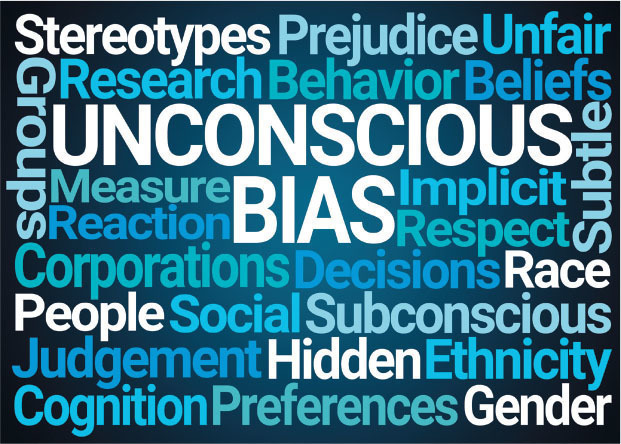DEI Feature
Unconscious biases (also called implicit biases) are the engrained social stereotypes about other people or groups that everyone carries without being aware of them. These attitudes can be related to age, race, gender, religion, culture, sexual orientation, appearance, political affiliation and many other attributes. Why does this matter to your business? Because when employees experience unconscious bias in the workplace, company culture and performance suffers.
Research from Coqual, formerly the Center for Talent Innovation, found that employees who perceive unconscious bias on the job are nearly three times more likely to be disengaged at work. Further, workers who experience bias are also 2.6 times less likely to share their ideas, and three times more likely to quit. According to Gallup, that lack of engagement costs U.S. companies as much as $550 billion annually.
In supply chain, a field long dominated by white men (as are many other industries), overcoming unconscious bias in the workplace goes hand-in-hand with many other Diversity, Equity, and Inclusion (DEI) efforts. Indeed, as companies continue to prioritize workplace attraction and retention in a challenging labor market, raising awareness of—and attempting to counteract—these unintentional slights has become increasingly important.
What unconscious bias looks like at work
As a woman working in our male-dominated industry, Ashley Rhodes, systems project manager at MHI member St. Onge Company, has experienced her share of unconscious bias. Rhodes, who admits to putting her own foot in her mouth by making bias-driven assumptions, said she has observed women being passed over for additional responsibilities because of gender.
“My perception is that the guys assume a woman who is a wife and mother has too much on her plate to take on a specific assignment,” she explained. “Or there’s an expectation that—as the only female in the room—it’s the woman’s responsibility to manage the administrative tasks associated with a meeting or a project.”
Skyeler Smith, industry development specialist at MHI member Murrelektronik, has seen unconscious bias inform the assembly of extremely homogeneous teams.
That is, “a leader putting a team together for a project and unintentionally choosing only people who look like them, are the same age, same race, and so on,” Smith said. “The danger is that it leads to group think and a lack of innovation. That’s the beauty of having a diverse team—whether that means through gender, race, age or other attributes. The diversity fills in every gap and allows a team to accomplish so much more because each person brings a different perspective.”
Confronting unconscious bias can improve relationships
A company’s culture can influence how willing leaders and employees are to embrace the task of overcoming unconscious bias. However, with more companies focused on fostering a more inclusive culture, discussing an incident perceived as unconscious bias should become easier, continued Rhodes.
“More organizations are working hard to have a safe space for employees to feel they are accepted, regardless of their differences,” she said. “It’s important to keep the focus on that and keep challenging ourselves—and each other—to raise awareness of something we don’t always recognize is taking place.”
Rhodes believes addressing unconscious bias requires trust and continuous relationship building with colleagues. “If you are in a position where you feel you’ve been on the receiving end of a decision that was driven by unconscious bias, then it’s important to open up a one-on-one dialogue with that person privately,” she advised.
Looping back to her earlier example of a woman who feels passed over for an opportunity because of bias that her family obligations make her unwilling to take on additional responsibilities, Rhodes said to speak up. Doing so not only corrects the misconception, but also provides a chance for establishing a deeper understanding of each other.
“Having these tough conversations is a good way to build relationships and build trust. We all have unconscious biases; no one is exempt from being in the hot seat at some point,” she said. “It’s important to be patient with one another.”
ROB WILSON/SHUTTERSTOCK.COM.
 MHI Solutions Improving Supply Chain Performance
MHI Solutions Improving Supply Chain Performance
 BY
BY